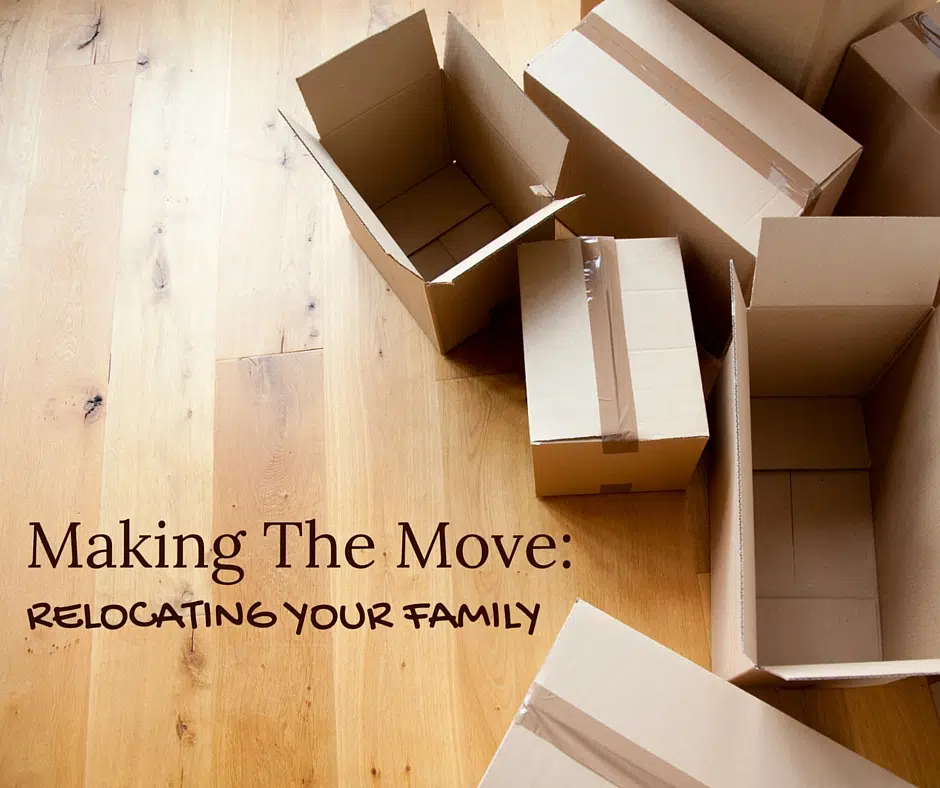They live in the most darling Austin-but-Southern-eque house just down the street, with plantation rockers on the two sets of porches that grace the front of the home. All their babies have been born here. They are deeply involved in our neighborhood, the community, their school, and their church.
And now they’re moving. Away. To snow and mountains. With their three young kids.
Moving. Relocating. Packing up.
No matter its nomenclature, I’m not a fan. But I’ve done it plenty.
When I found out that our adored neighbors are moving away, it got me to reflecting on the various moves I’ve made in my life. As an early elementary school kid. As a high school student. As a newlywed. As a mom of six kids. As a mom five weeks away from birthing twins, which then made me a mom of eight in a city where I knew no one. And I got to wondering what advice I would give to those relocating versions of myself, now with the panorama of those Pan-American moves under my belt. It’s a complex thing, this packing up of one life and embarking on another.
1. A move will impact each member of the family differently.
My husband Michael is an extrovert. As in, big time. For him, moving to new cities and jobs is like water to a desert. He soaks it up. Loves it. Is invigorated, energized, and inspired.
Me?
Not so much. I collect people, places. I set down deep roots. I get attached to the way things are laid out in my grocery store, the way my streets hide certain shortcuts, the way the sunlight looks in my neighborhood. So when I’ve gone through moves, it’s a deep soul tear. It doesn’t mean we shouldn’t have moved and followed the Lord’s guiding. It’s just that for those hinged more like me, the cost is higher.
And we’ve definitely seen this in our kids as well.
Some of them took the moves with a sense of anticipation and some with a sense of wrenching loss.
It all counts. The ones who approach it with glee, the ones who approach it with gloom. When moving as a family, it’s critical to honor the responses of each family member, with a no-judgment zone declared for all. Being excited about a move doesn’t mean a family member doesn’t care about what has been built in relationship in the current community. Being sad about a move doesn’t mean someone isn’t open to new adventures and possibilities.
2. Nurture the idea of family as home.
In terms of family bonding, a move can glue like no other. Or it can strain the seams of family life to the extreme. So actively cultivate the opportunity to strengthen and celebrate the community of nuclear family life. I do think that my brothers and I cemented our deep bonds of friendship through the shared experience of relocating coast-to-coast as kids. I’ve seen my children’s friendships with each other be fortified when the distraction of peer groups is temporarily interrupted. Talk about how your kids can support each other. Point out that in a move, siblings are the friends you actually get to take with you. And make sure you’re engaging this perspective with your spouse as well. For Michael and I, our moves either made us much closer or created a wedge. It takes an intentionality to protect the friendship of marriage in a new season with the stresses that come from relocating.
3. Intentionally create new memories and traditions in the new locale.
Part of what is so discombobulating in a move is the relinquishment of the routines and customs you’ve had. Those simple cycles create a sense of belonging and identity. So when you get to your new place, make one night a week Family Yogurt Night at the local TCBY, or instill a nightly bike-and-walk trail. Michael and I went to the same Mexican restaurant in our neighborhood every Friday night for several months when we moved to Austin. It was a comfort to say hello to the same servers and hostess, to find a couple of favorite items on the menu we ordered again and again. Don’t underestimate the day of new, small beginnings. And this note: even if you’re just moving to a new house in the same city, it’s still a big change. Being intentional to embrace your new zip code will make it feel like home faster.
4. Don’t push too soon, don’t stagnate too long.
It’s okay for it to take a bit to acclimate. If you’re a personality type who adapts to change quickly, awesome. But if one of your children is not, it’s okay for it to take several weeks up to a few months for that child to shake off the sad and ease into the new. But if that homesickness for what used-to-be-home lingers too long, it may be time to get a third party in to listen and guide. I’m still surprised at times when my brothers and I talk about the impact our childhood moves had on us at the emotion that lingers there. It is a big deal. And sometimes, things that are a big deal can really benefit from having a trusted counselor or pastor help guide along the path.
Even though moving is not my favorite thing, the incredible blessings that have come from those moves is phenomenal. The friendships we’ve developed, the adventures we’ve had, the homes we’ve lived in, the experiences we’ve collected, are all the bounty of the voyage. I’ll miss my precious neighbors and their darling kids as they head for northern climes. And I’m excited to see this new chapter unfold for them. Godspeed, my friends. Godspeed.

















